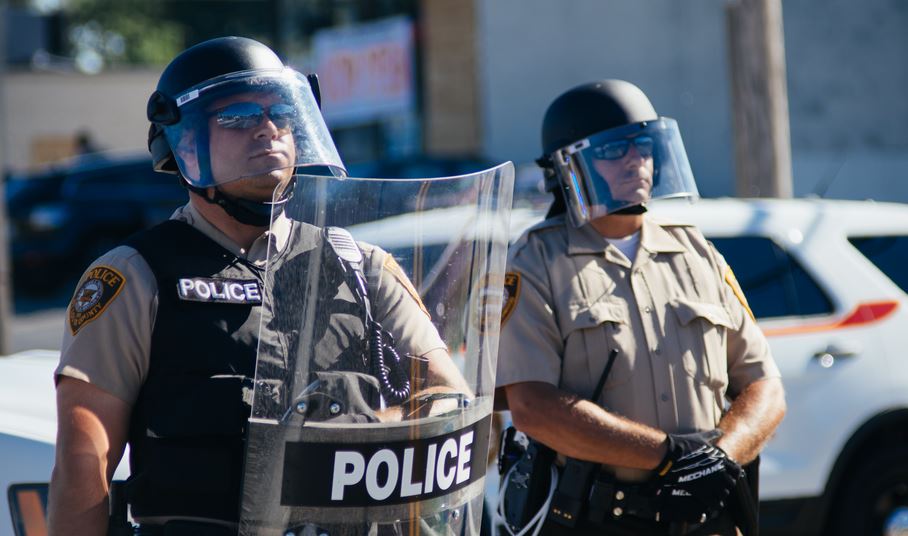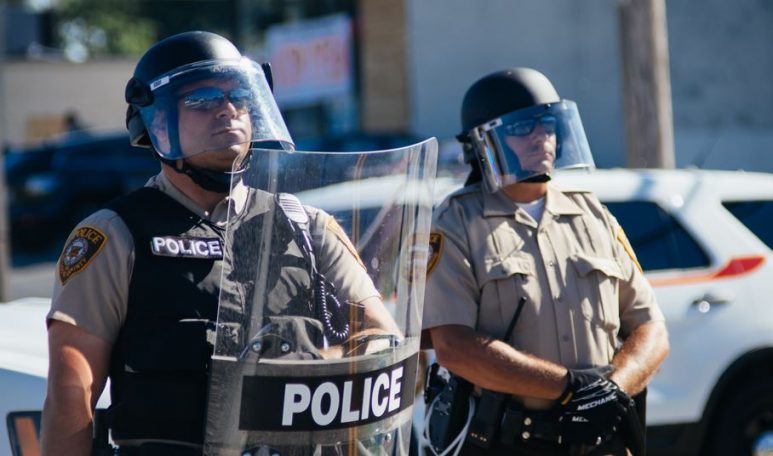Published: 29 November
Country: US
 The majority of the media describe the situation in Ferguson, Missouri as a warzone, a place of fires and chaos, riots, looting and destruction. The Grand Jury recently dropped the charges against the police officer who shot Michael Brown, a black teenager, and since then the protests in Ferguson have been dominating the US media, but many accused the mainstream media of giving too much prominence to the potential for violence and not enough to the decision itself. There are not so many media outlets which provided the context without stigmatising the black community by connecting them primarily with violence on the streets of Ferguson and a destruction of the city.
The majority of the media describe the situation in Ferguson, Missouri as a warzone, a place of fires and chaos, riots, looting and destruction. The Grand Jury recently dropped the charges against the police officer who shot Michael Brown, a black teenager, and since then the protests in Ferguson have been dominating the US media, but many accused the mainstream media of giving too much prominence to the potential for violence and not enough to the decision itself. There are not so many media outlets which provided the context without stigmatising the black community by connecting them primarily with violence on the streets of Ferguson and a destruction of the city.

Young black Americans turned to #BlackTwitter to provide their own version of the truth.
“What we have is consolidated media, owned by a handful of corporations and with a profit motive. You can sell sensationalism, you can sell stories about looting and crime, episodic and incidental stories much more easily than you can sell stories about history or that proved context and that will tell you a real story,” says Malkia Cyril, founder and executive director of the Center for Media Justice, for The Listening Post on Al Jazeera.
She adds that every 24 hours in the US a black person is killed by a police officer. According to the official statistics and FBI data that has been analysed by ProPublica, “young black males in recent years were at a far greater risk of being shot dead by police than their white counterparts – 21 times greater”.
 But while media explores black people’s rage after the killing of Michael Brown and more recently, the Grand Jury’s decision not to indict the police officer Darren Wilson, The Washington Times published an opinion piece by Carol Anderson, an associate professor of African American studies and history at Emory University. She explains the historical, administrative and legislative decisions in the US that can be described as ‘white rage’. “Sure, it is cloaked in the niceties of law and order, but it is rage nonetheless,” writes The Washington Post adding “the election of Obama gave hope to the country and the world that a new racial climate had emerged in America, or that it would. But such audacious hopes would be short-lived”.
But while media explores black people’s rage after the killing of Michael Brown and more recently, the Grand Jury’s decision not to indict the police officer Darren Wilson, The Washington Times published an opinion piece by Carol Anderson, an associate professor of African American studies and history at Emory University. She explains the historical, administrative and legislative decisions in the US that can be described as ‘white rage’. “Sure, it is cloaked in the niceties of law and order, but it is rage nonetheless,” writes The Washington Post adding “the election of Obama gave hope to the country and the world that a new racial climate had emerged in America, or that it would. But such audacious hopes would be short-lived”.
Some media commentators focused on US President Obama’s statement on the Grand Jury’s decision not to charge the police officer. Obama said that “there is never an excuse for violence.”
“The man who once told us that there was no black America or white America but only the United States of America has become a President whose statements on unpunished racial injustices are a genre unto themselves,” wrote The Atlantic. In another report of the same magazine, it can be read that “just as Léon Blum’s prime ministership did not lead to a post-anti-Semitic France, Barack Obama’s presidency should never have been expected to lead to a post-racist America.”
“As it happens, there is nothing about a congenitally racist country that necessarily prevents an individual leader hailing from the pariah class. The office does not care where the leader originates, so long as the leader ultimately speaks for the state. On Monday night, watching Obama both be black and speak for the state was torturous. One got the sense of a man fatigued by people demanding he say something both eminently profound and only partially true. This must be tiring,” reports The Atlantic.
US mainstream media coverage of the protests in Ferguson, according to MDI US Head of Operations Marija Sajkas, gives an impression of two parallel stories unfolding. “While left leaning media consistently report about race as a dominant issue, other outlets have difficulty finding an angle, reporting about almost everything else but about crux of the matter. Fox News started covering Ferguson by asking if the national media attention is really necessary, followed by accusing President Obama and his administration for ‘orchestrating” unrest’. Influential conservative radio host Rush Limbaugh was recently quoted saying that he understands anger of black people who are mad at Democrats because of the broken promises. Also, Don Lemon of CNN did his reporting in a St Louis accent, remarking that the protestors are smoking marijuana”.
After being so often criticised for its reporting, CNN and its anchor Chris Cuomo, decided to defend the network and the media. “We’re always talking about political correctness. It seems the media is one of the last places you can go and just bash all you want, all across the range, and it’s still okay. But it’s also a little dangerous because it’s one of the best freedoms we have. ” – these were the words of the CNN anchor.
As media coverage of Ferguson have become the topic for the media coverage itself, The Washington Times listed some of the most striking cartoons related to the protests, racial divisions and legal and logistic specifics of the case.
Related Stories:
Ferguson: Media Misses the Positive Stories
photo credit: photopin
